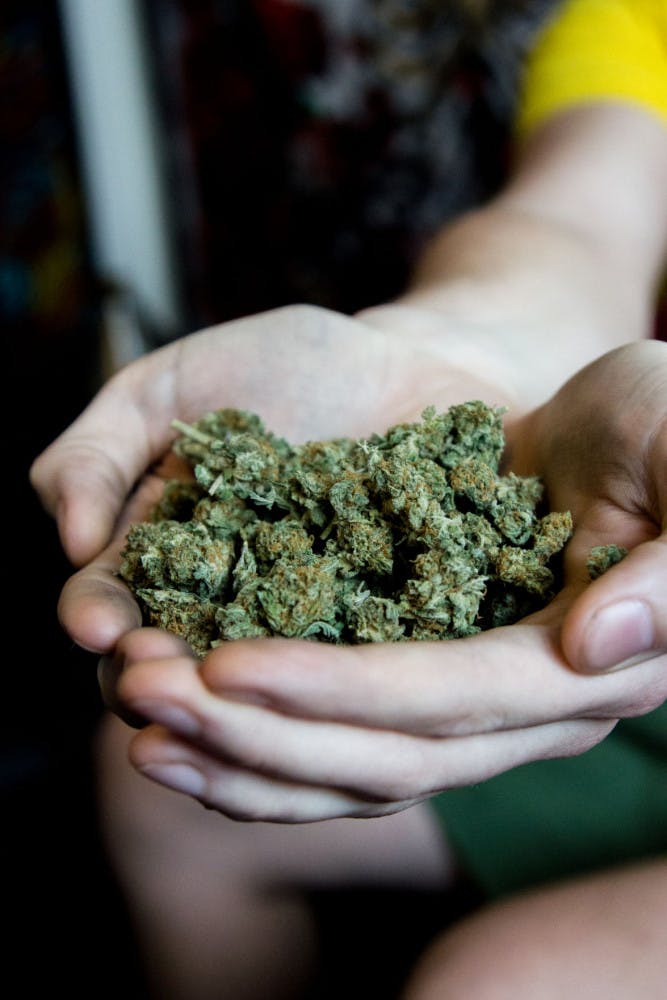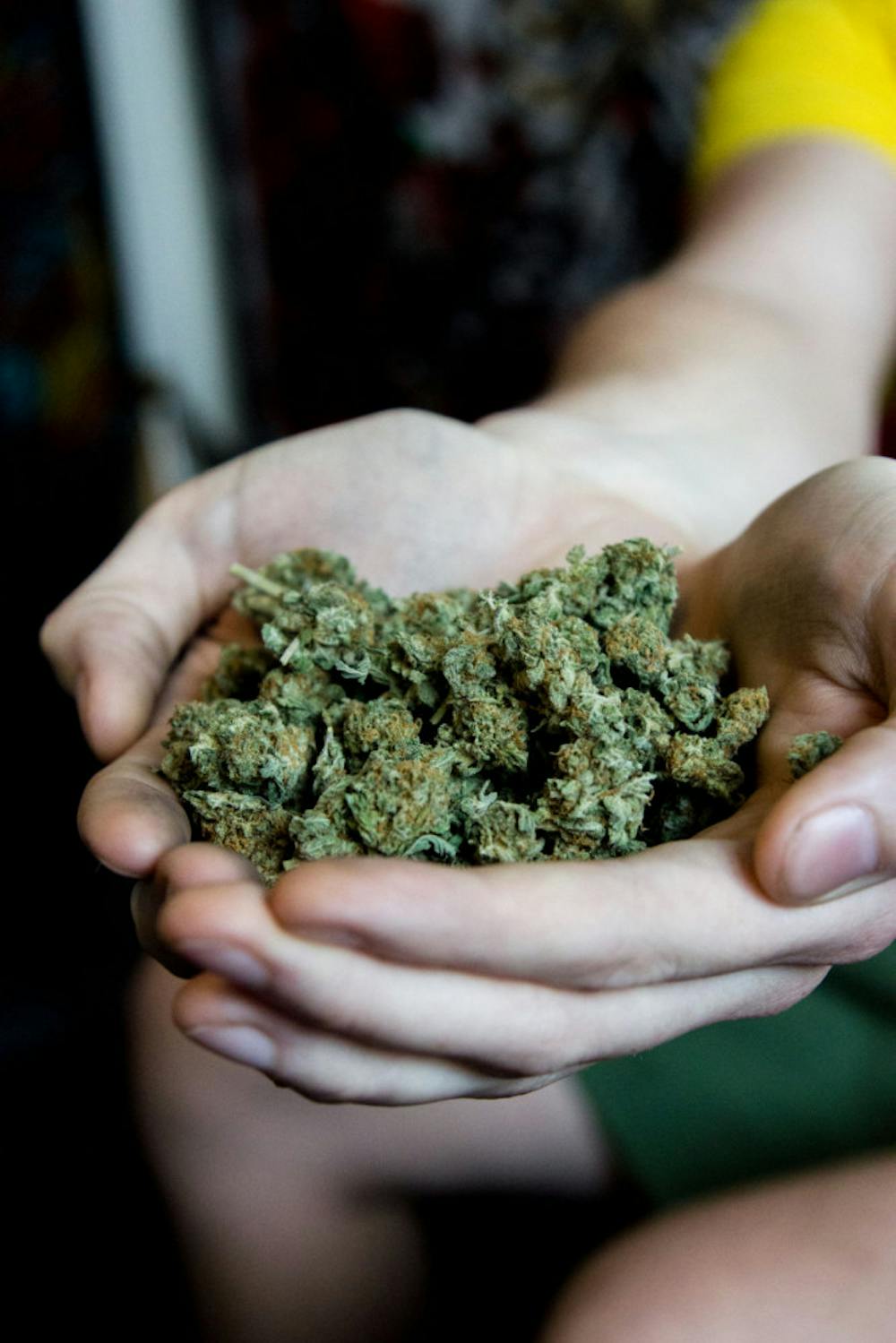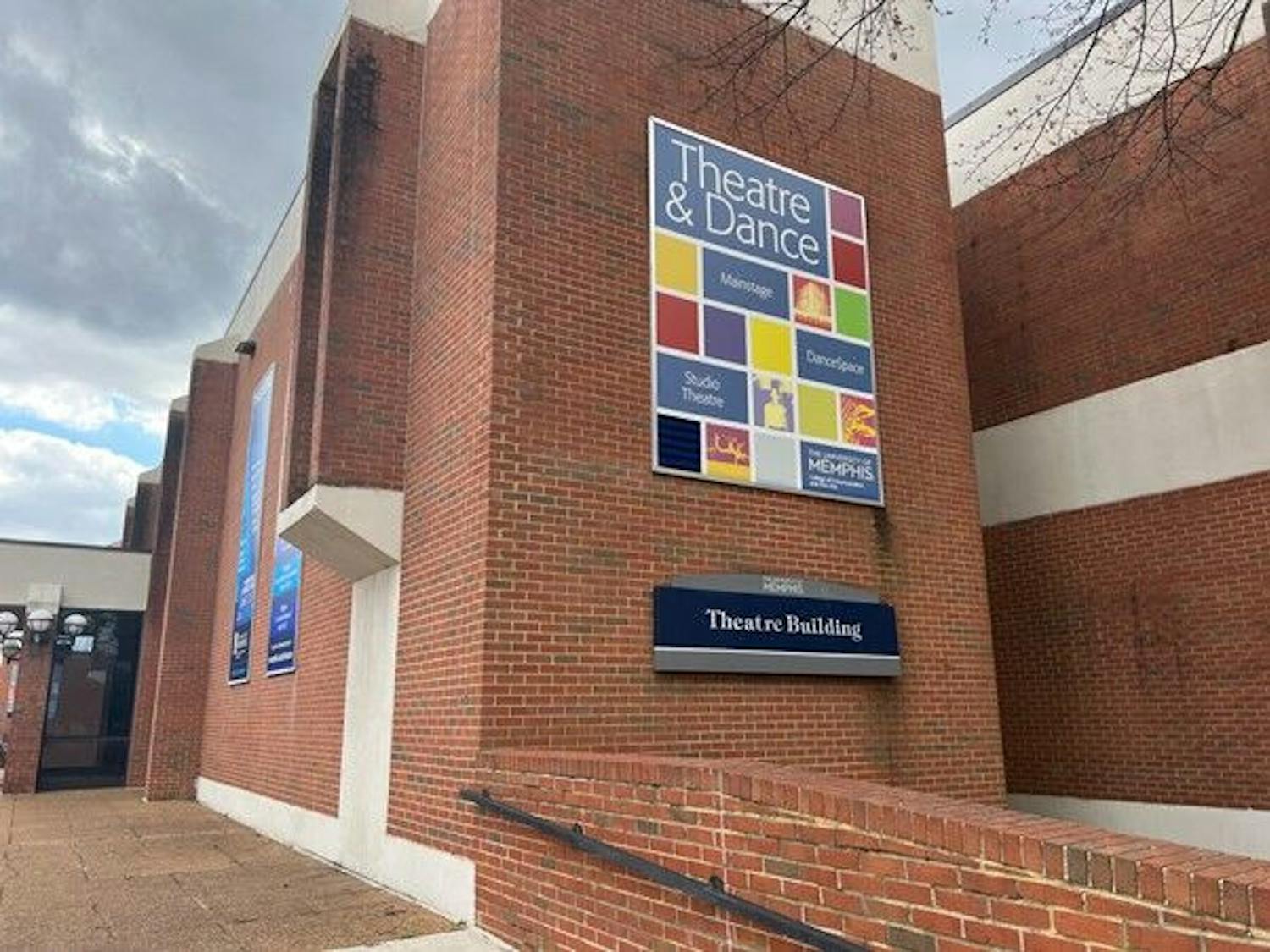
A student holds more than 14 ounces of weed in his home less than a mile from campus.
For the first time in history, the public opinion on cannabis laws seems to have bridged the generational gap, with the majority of Americans in favor of reform.
The number of supporters for marijuana legalization amongst Millennials, Gen X-ers and Baby Boomers has nearly doubled since 2001, according to a series of surveys released by Gallup in October 2015.
Cecily Friday, founder of the Tennessee Cannabis Coalition, said 61 percent of Americans are in favor of legalization as of 2016.
“I think this is the year that we will reach a tipping point when it comes to the reform of cannabis laws,†Friday said. “Legislators simply will not be able to enforce these laws any longer without a significant cost socially and financially.â€
Although 76 percent of Tennesseans now support legalization for medicinal purposes, Friday said the state still has a lot of work to do.
“Tennessee is very conservative, so there will need to be a significant effort to educate the public on health and safety issues involving cannabis before the more rural areas become more comfortable with the idea of legalization,†Friday said. Gov. Bill Haslam signed a bill in 2014 to allow seizure patients access to cannabis oil obtained outside state lines.
However, the bill was ruled ineffective less than a year after its signing. This means cannabis patients, or any person caught with marijuana in the state, could go to prison for up to a year, in addition to being subject to a fine ranging from $250-$2,500.
Third and subsequent offenses are considered felonies and are punishable by one to six years in prison, as well as a fine of up to $3,000.
Bills proposed to eliminate the felony classification for third-time offenders and to decriminalize non-monetary exchanges of marijuana in quantities below a halfounce also recently failed to pass by Tennessee legislators.
Lyn McKinney, a representative for the Tennessee activist groups Parents 4 Pot, Grannies 4 Grass, Cannabis is Essential and Cannabis Activist and Advocate Central, also said legalization of cannabis faces many hurdles in Tennessee.
“We can’t make progress because we’ve got doctors in our senate that say they need more proof when there are already thousands upon thousands of studies out there,†McKinney said. “You can’t spell pharmaceutical without harm, and you can’t spell healthcare without THC.â€
McKinney strives to spread awareness about the benefits of medicinal marijuana as opposed to traditional pharmaceutical medications.
“We have to have different cannabis laws,†McKinney said. “We are putting people in prison and ripping families apart, and we’re doing this over a simple medication. We try to stress that all use is medical, whether or not that is the intent.â€
Aside from its utilization as a treatment for many serious and even deadly diseases, marijuana may also help with lung health, anxiety, metabolism, PTSD and appetite.
It has also been known to help to protect the brain from trauma, eliminate nightmares and help alcohol users cut back, according to Business Insider, a news site for business and technology.
A great deal of Mckinney’s activist work focuses on raising money for families with children in need of cannabis treatment.
“I think the biggest benefit of legalization will be the preservation of our children,†she said. “I want to see them thriving, not dying.â€






